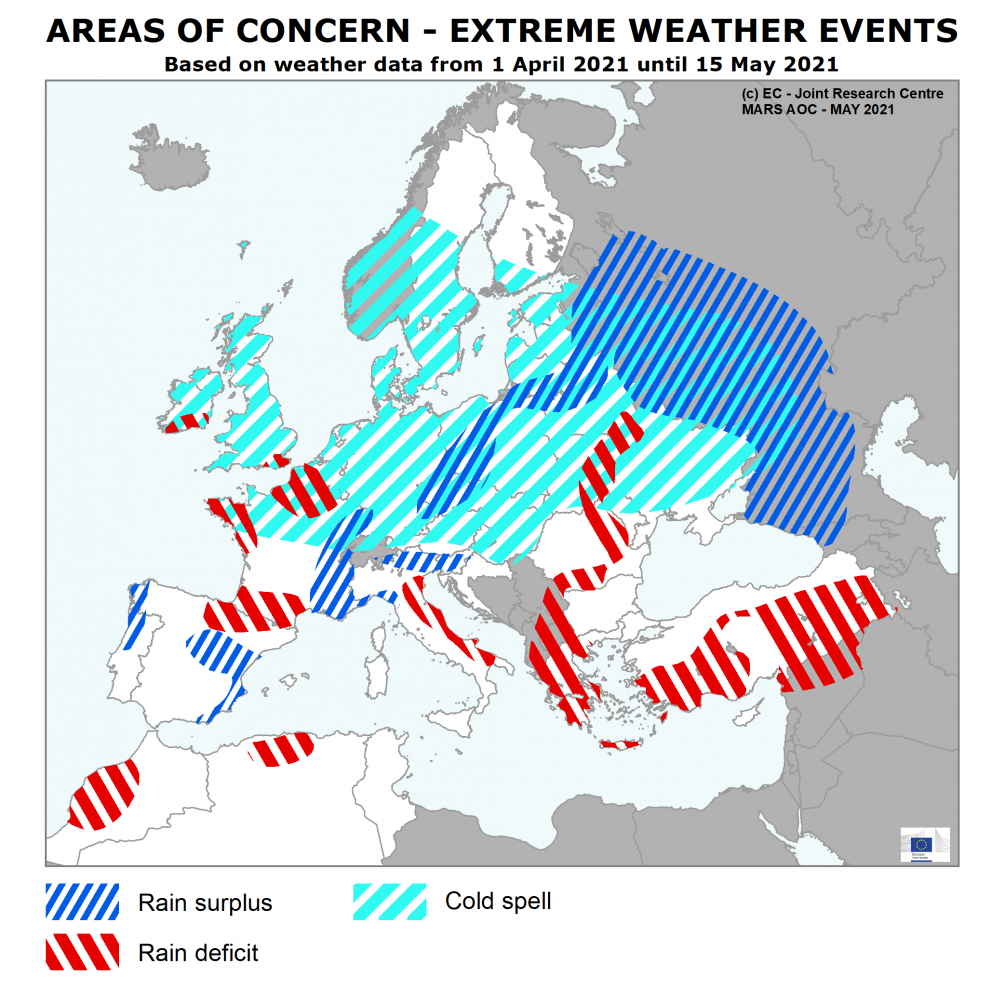
The May issue of the JRC MARS Bulletin - Crop monitoring in Europe - was published today, alongside the May edition of the Bulletin on Turkey, in the JRC MARS Bulletin global outlook series.
Yield forecasts for winter crops in EU revised slightly upwards
According to the crop monitoring Bulletin for Europe, the yield forecasts for EU winter crops have been revised slightly upwards, mainly because the improved outlook for France, Romania, Bulgaria, Hungary and several other southern-central European countries outweighed the slight downward revisions for Greece and several more northerly countries.

Exceptionally low temperatures and rainfall anomalies had limited impact on annual crops
During the period of review, much of Europe was affected by severe cold spells. The most distinct events that occurred after the reporting period of the April Bulletin (20 April) mostly affected north-western, central, eastern and northern Europe. The main impact of the cold events on winter crops has been a delay in growth and phenological development, and some reversible damage to flowering rapeseed stands, with no major impacts on yield potential. In the case of spring cereals and summer crops, emergence and canopy development are delayed in the regions affected.
Rain deficits that occurred in several EU regions had little or no negative impact on yield potential, as soil water contents remained at adequate levels in most regions and evaporative demand was relatively low. Rain surpluses in other parts of Europe mostly benefited crops by restoring soil water levels.
Unfavourable spring delays crop growth in Turkey
In Turkey, the forecasts for winter cereal yields are above the 5-year average, but below last year’s yield (with the exception of barley). A significant downward revision in June is possible in the coming weeks, since the delayed season increases crop vulnerability to heat stress. Moreover, water reservoir reserves are low, which raises concerns for the summer season.
Further information
JRC MARS (Monitoring Agricultural Resources) Bulletins
The latest information about global agricultural production hotspots for countries with food insecurity risks is available on the JRC’s ASAP (Anomaly hot Spots of Agricultural Production) site.
The June 2021 issue of the Bulletin will be published on 21 June.
Related Content
Details
- Publication date
- 25 May 2021
